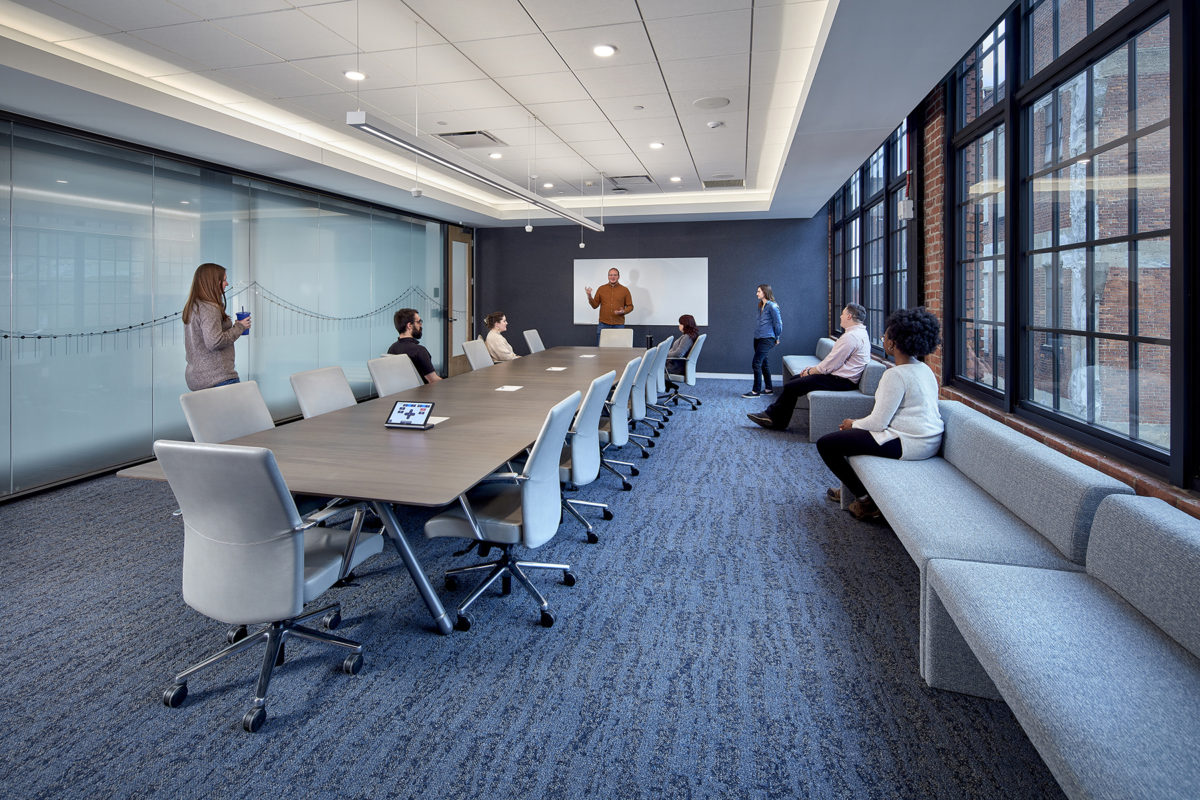Why does Pittsburgh tech want to go back to the office?
A new report from JLL Pittsburgh examines the trends behind a series of recent office expansions and openings across the city, particularly in the tech industry. A number of leading tech firms have chosen to more than double their physical footprints in Pittsburgh or open up new locations here, from East Liberty to Bakery Square to Hazelwood Green to the North Side. That’s led to an uptick in new leasing activity, but JLL found that the numbers are still significantly lagging behind pre-pandemic levels.
As of the first quarter this year, the subleasing availability rate was at an all-time high for Pittsburgh, reaching 3.9% even after many of these new office expansions were announced. Overall, the city has only seen one quarter with positive absorption — a situation in which more commercial space is leased than is available — since the start of the pandemic, though the JLL report didn’t note which quarter that was.
None of this comes as a surprise.
There have been countless reports since the start of the pandemic tracking the decrease in office space rentals and making estimations at how work habits are permanently changing because of it. But it is one of the few examples of Pittsburgh-specific statistics, and paints an intriguing picture in the context of surprisingly high rent rates in some of the city’s neighborhoods.
Per a November 2021 CBRE report, from the second quarter of 2019 to the second quarter of 2021, the Oakland and East End area of Pittsburgh office rent grow by 34.6%, the highest rate of increase over that period in the whole country. Still, the average asking rent for offices in that area is $36.09 per square foot, which is significantly cheaper than the same measure for larger tech hubs like Silicon Valley and Boston, which come in at rents per square foot of $113.28 and $89.65, respectively.
“There’s no doubt that the Pittsburgh tech sector is leading the way in the return-to-office movement,” JLL VP Jackie Bezek said in a statement. “Flight to quality is playing a huge role in the market, and the tech industry realizes that now is the time to act on these deals and secure some of the most unique, amenitized spaces in the most popular, up-and-coming areas. Recent examples include Duolingo’s expanded 39,000-square-foot office in Liberty East, Google’s three-floor expansion in Bakery Square and Aurora’s 100,000-square-foot headquarters at 1600 Smallman [in the Strip District].”
Others include new local engineering offices for DoorDash and Sheetz, Gecko Robotics‘ expansion at Nova Place and new space for 3M technologists at Rockwell Park in Point Breeze. Local academic institutions such as Carnegie Mellon University and the University of Pittsburgh have both announced new spaces for research and development focused on innovation across tech and the life sciences.
One thing all of these have in common? The buildings are new.
JLL found that 70% of the new leases signed in Pittsburgh since 2018, have been built or renovated within the last 10 years. That’s largely due to increased demands from tenants for amenities like relaxation spaces, healthy food services and outdoor spaces. Again, that’s not surprising given the flexibility many employees have come to know while working from home, but the financial effects behind these trends are starting to take shape. The report noted that, across the country, pandemic-induced flight to high-quality office space surpassed 51 million square feet, leading to a performance gap of 12% between amenitized and commodity buildings.
In Pittsburgh, that’s led to record-high concessions for office buildings. In other words, more than ever before, building owners are offering benefits or discounts to tenants in order to close more deals. In 2021, the average rent abatement period in Pittsburgh was around 12 months, while the average tenant improvement allowance made available by building owners was over $90 per square foot.
For better or for worse, all of these factors together are creating an incentive for Pittsburgh tech companies to get back into the office. And considering how many work in sectors that greatly benefit from or even require in-person work — robotics and advanced manufacturing, for example — there’s a good chance more lucrative leases are in the Steel City’s future.







